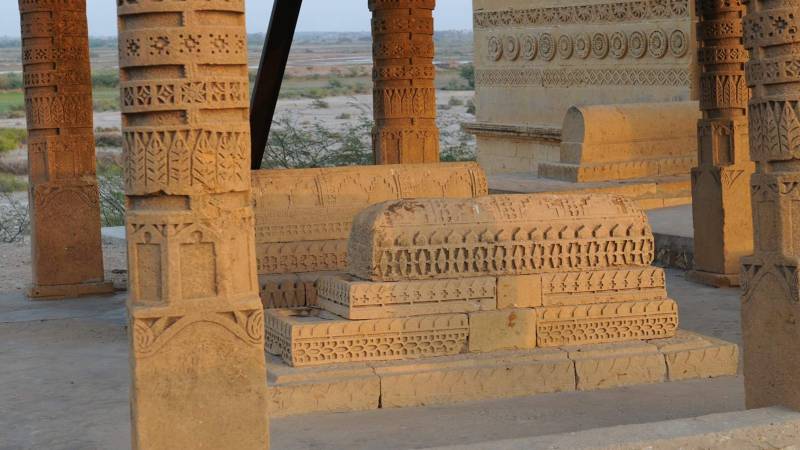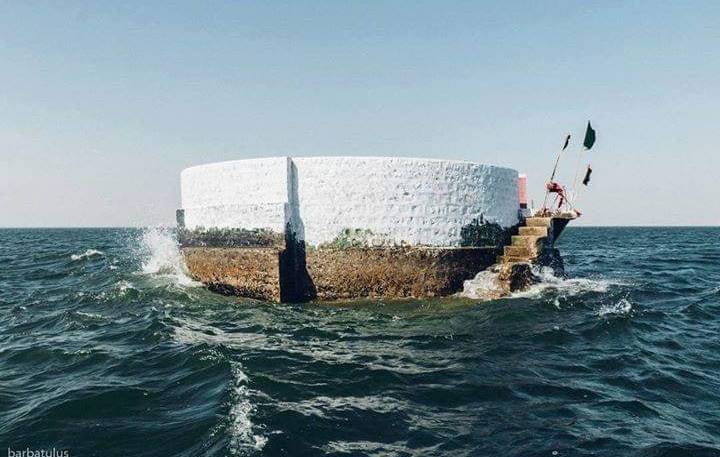
Bringing home the importance of accurately preserving history, a collective of historians, archaeologists, columnists, octogenarian eyewitnesses, and local scholars assert that the grave of the legendary prince and figure of romance Noori is not situated on a tiny island in the midst of Keenjhar Lake's deep waters, but rather lies adjacent to the mausoleum of Sindh's esteemed ruler Jam Nizamuddin, under a canopy at Makli Necropolis in Thatta. This site has long been associated in folk imagination with the tale of Noori Jam Tamachi.
This conclusion, reached after extensive study, site visits, interviews and analysis by a group including former Director General of Tourism and Cultural Department Dr. Muhammad Ali Manjhi, noted environmentalist and history analyst Masood Lohar, columnist Zahid Ishaque Soomro and several elderly locals, aims to rectify the historical narrative for the benefit of future generations.
Noori, traditionally depicted by noted poet of Sindh Shah Abdul Latif Bhittai as a humble fisherwoman, is contrasted with Prince Jam Tamachi and his royal upbringing. Despite their disparate social backgrounds, Noori's unwavering humility and devotion to Jam Tamachi distinguishes her, endearing her to the prince of the Samma dynasty and distinguishing her from other queens.

The enduring love story of Noori and Jam Tamachi gained widespread popularity after being immortalised in the poetry of Shah Abdul Latif Bhittai, particularly in the compositions Sur Kamod and Sur Karayal. This narrative has continued to captivate audiences through the works of poets such as Sheikh Ayaz and Sajid Soomro.
Researchers contend that during the expansion of Keenjhar Lake, the recent island formed outside its present boundaries, housing the graves of Hoondrro Shah and his son and associated spiritual leaders, became surrounded by the lake's waters. Over time, local elders such as Dada Adam Gandhro and Jummo Mirbahar revealed that misinterpretations by tour guides and entertainers led visitors to believe that this island contained the graves of Noori and her spiritual leader Hoondrro Shah, which was inaccurate. They assert that Noori's grave lies beneath the canopy at Makli Necropolis.
As for the Samma Dynasty, it rose to prominence in the region of Sindh during the 14th century. Founded by Jam Unar, the dynasty expanded its influence across the Indus Valley, ruling over territories in present-day Pakistan and parts of India. The Samma rulers, known for their administrative reforms and patronage of the arts, played a significant role in shaping the cultural landscape of Sindh. Jam Nizamuddin, a notable figure of the dynasty, is revered for his contributions to governance and culture, with his mausoleum being a testament to his enduring legacy in the region.
The enduring love story of Noori and Jam Tamachi gained widespread popularity after being immortalised in the poetry of Shah Abdul Latif Bhittai
Now historians are urging writers, media professionals and Sindh's Tourism and Culture Department to ensure historical accuracy and prevent the dissemination of incorrect information by unscrupulous parties among history enthusiasts.
According to historical accounts, Noori was born in the household of King Jasodhan, her mother being Marviyat Rani. Despite her noble birth, Noori was raised in the Gandra tribe. The renowned tale of Noori Jam Tamachi depicts Tamachi's admiration for Noori's beauty during a hunting expedition at the legendary Keenjhar Lake, leading to their marriage and her ascension to the position of queen alongside Jam Tamachi, as immortalised in the poetry of Shah Abdul Latif Bhittai.
It is worth noting that Thatta's historical sites attract over 10,000 visitors every weekend, including casual visitors, picnickers and tourists from further afield.

